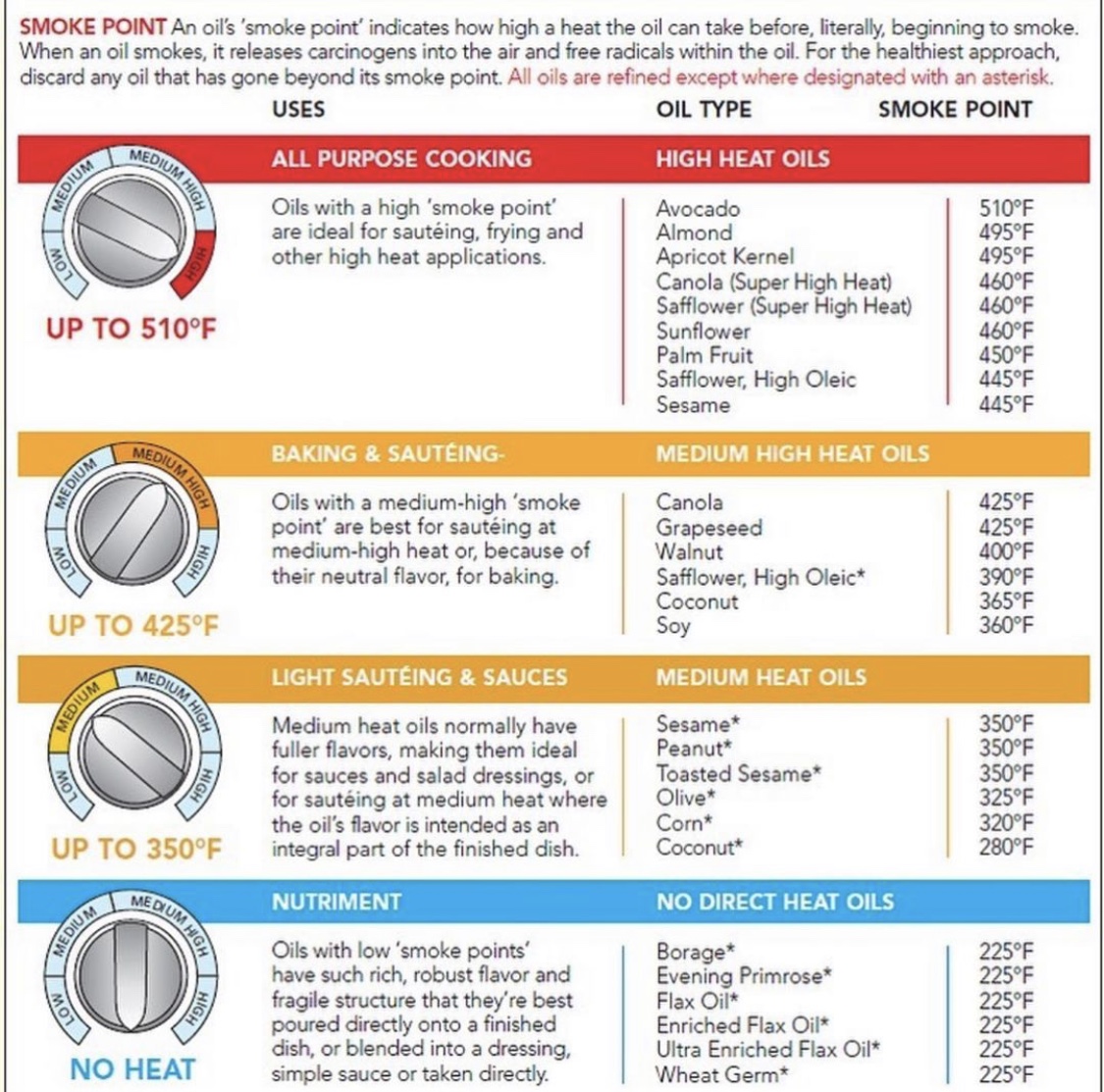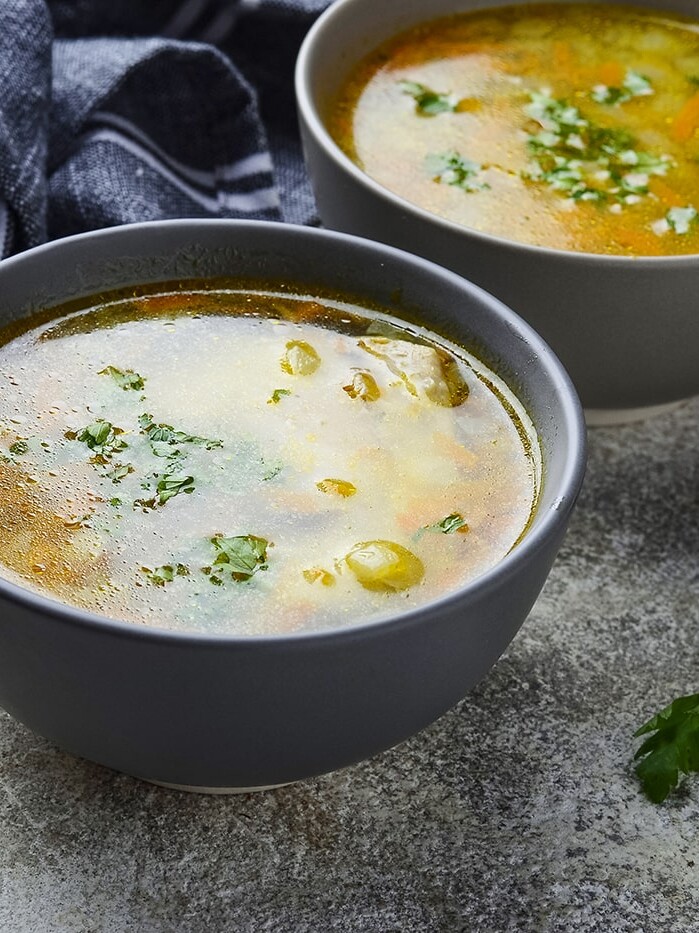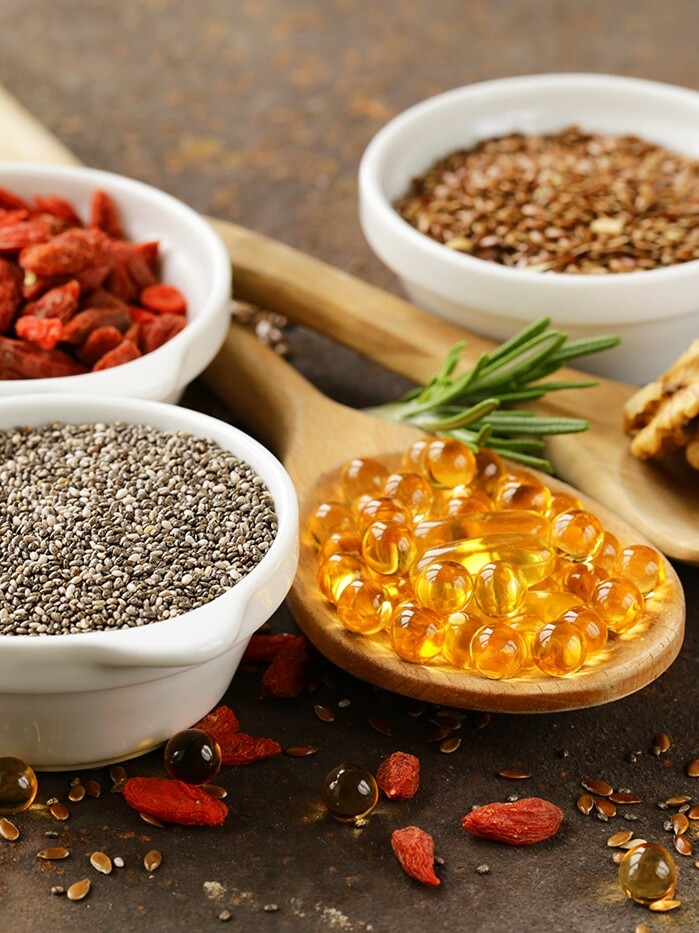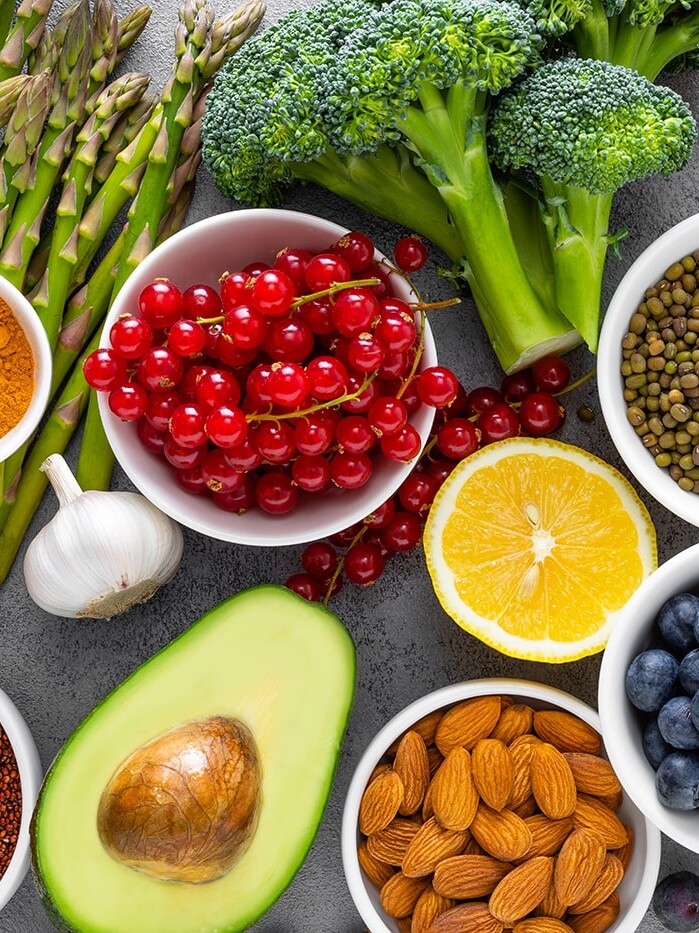When it comes to cooking with fats, it’s important to consider the level of saturation, the smoke point, and how processed it is.
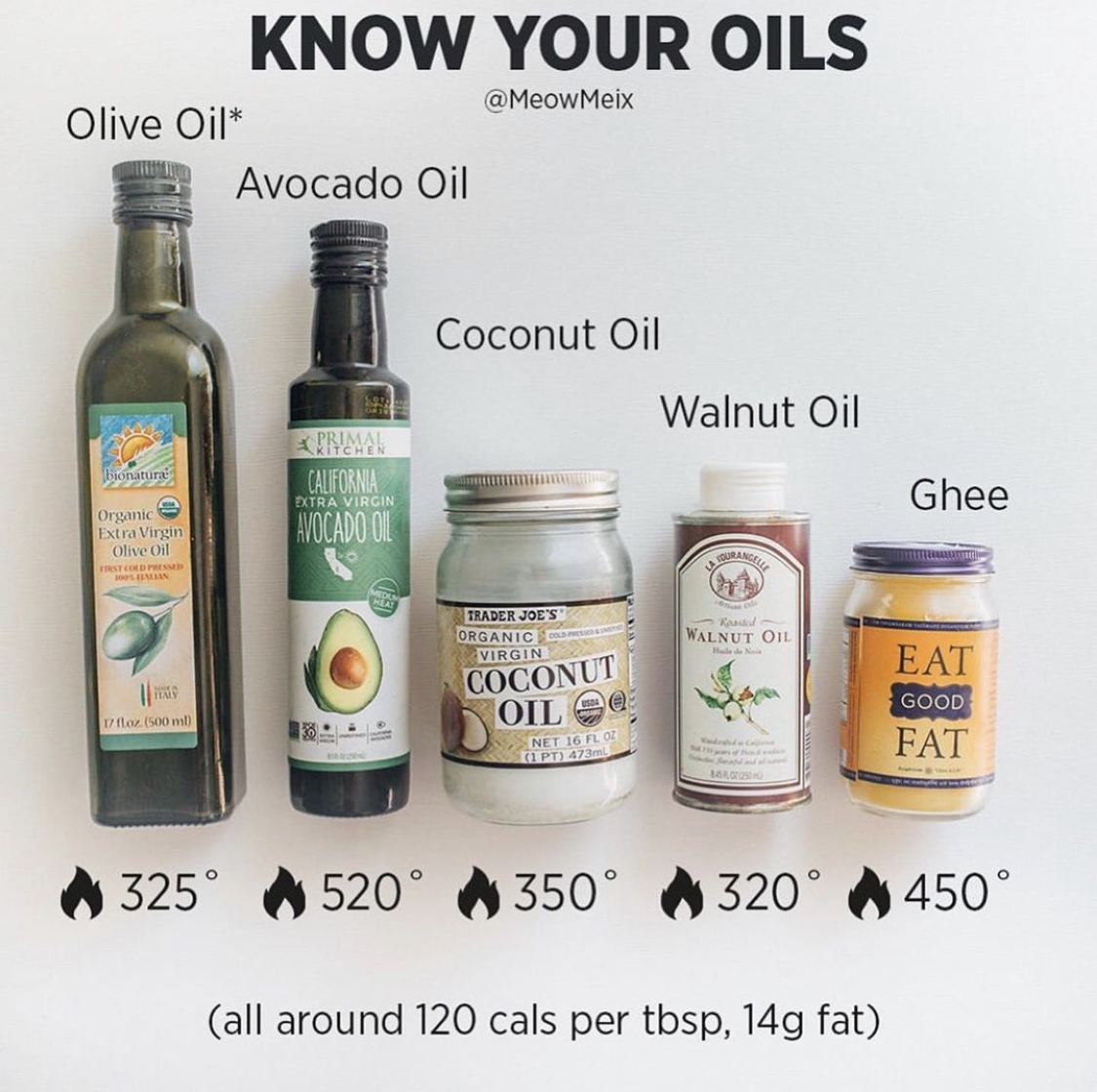
In general, saturated fats (coconut/ghee), are better to cook with since they are more stable and less likely to rancify when heated. This is due to their chemical structure which is solid at room temp and contains no double bonds.
Unsaturated fats on the other hand are broken up into 2 subgroups: monounsaturated (MUFAS) & polyunsaturated (PUFAS) fats.
MUFAS have less double bonds than PUFAS and are found in avocados, macadamia, and olives. PUFAS are found in various seeds and nuts, and oily cold-water fish such as salmon.
Unsaturated fats such as nut/seed oils and vegetable oils are less chemically stable, and more prone to lipidperoxidation (ie. generation of ROS, free radicals, and inflammation = tissue damage).
These “oxidized oils” can also impair insulin sensitivity
The temperature an oil starts to undergo lipidperoxidation and become rancid is known as the “smoke point.”
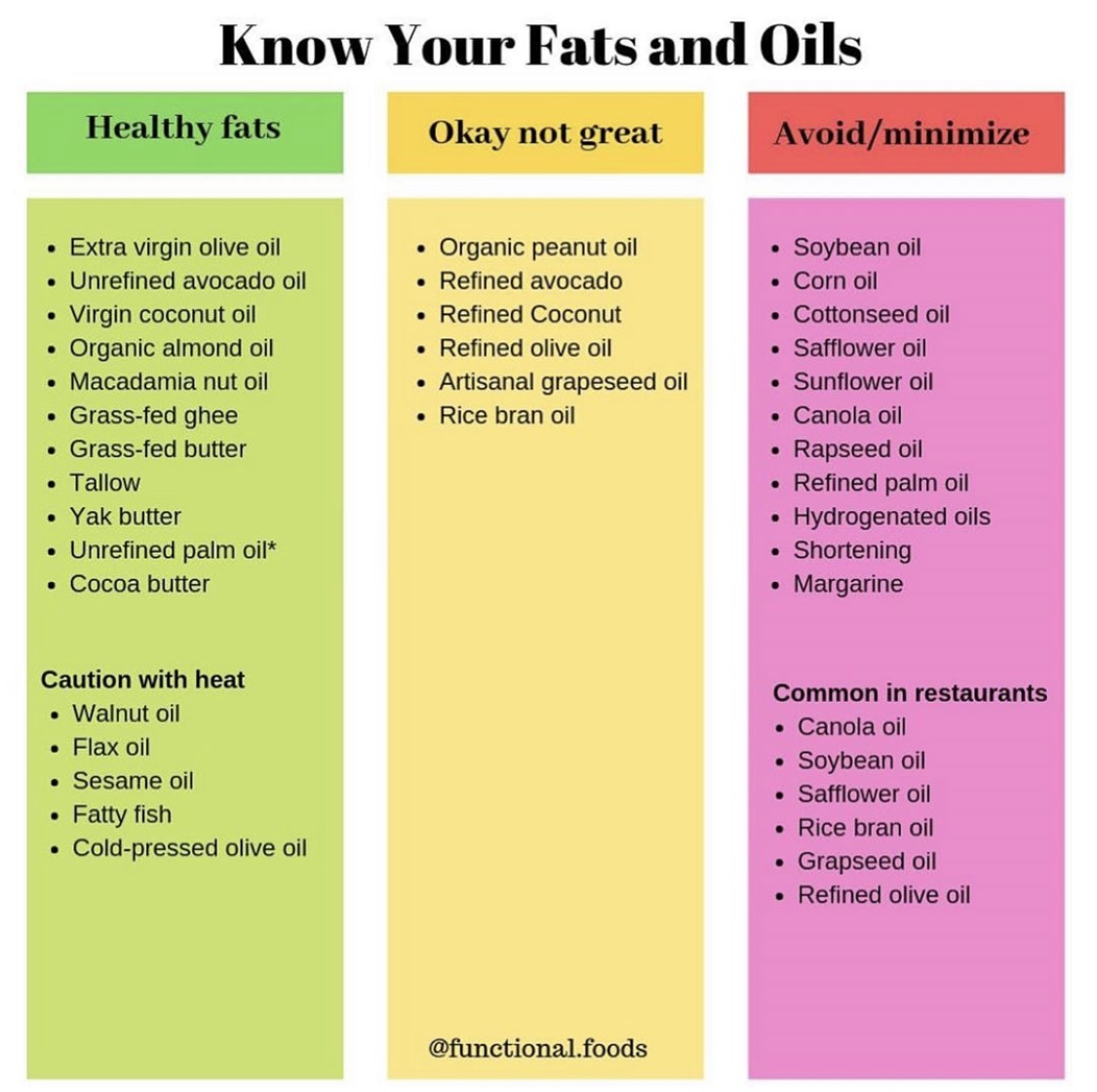
When choosing a fat to cook with, choosing one that has a HIGHER smoke point or simply cook at LOWER TEMPERATURES.
Avocado (although unsaturated) is great to cook with because of its high smoke point. Ghee (clarified butter) is arguably the best saturated fat (smoke point = 450 F) where grass-fed butter is about 350 F.
I generally like to save cold-pressed olive oil for salads and dressings. However, one study showed that frying with unrefined olive oil did not generate the same amount of free radicals and peroxide when fried 🤔 (likely due to the antioxidant properties of oleocanthol).
Coconut oil can be a great fat to cook with at medium heats, not high.
The last thing to consider is the level of processing the fat has gone through. Look for cold-pressed, expeller-pressed, extra virgin, and virgin. Unprocessed virgin oils are prepared by physical or mechanical process within thermal limits and without solvents. You’ll notice that a processed vs virgin coconut oil has two different smoke points.
